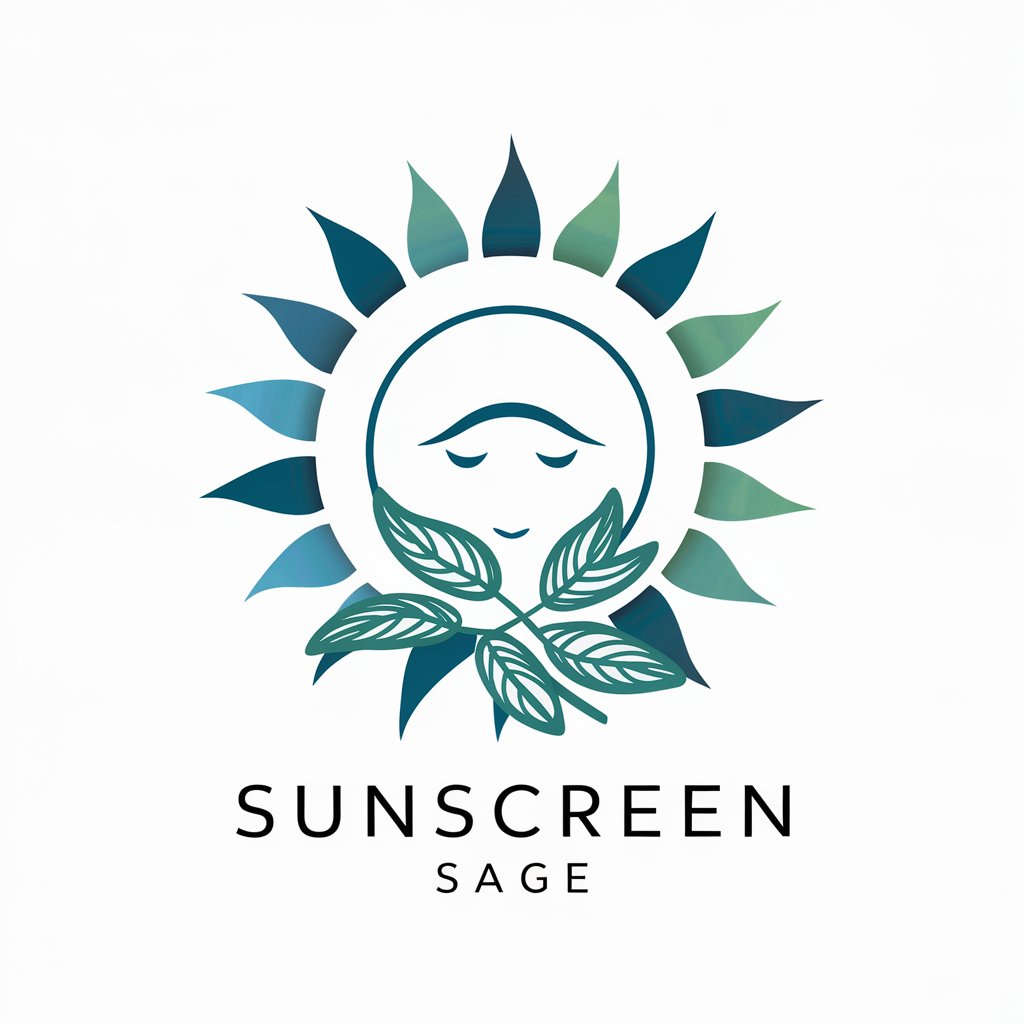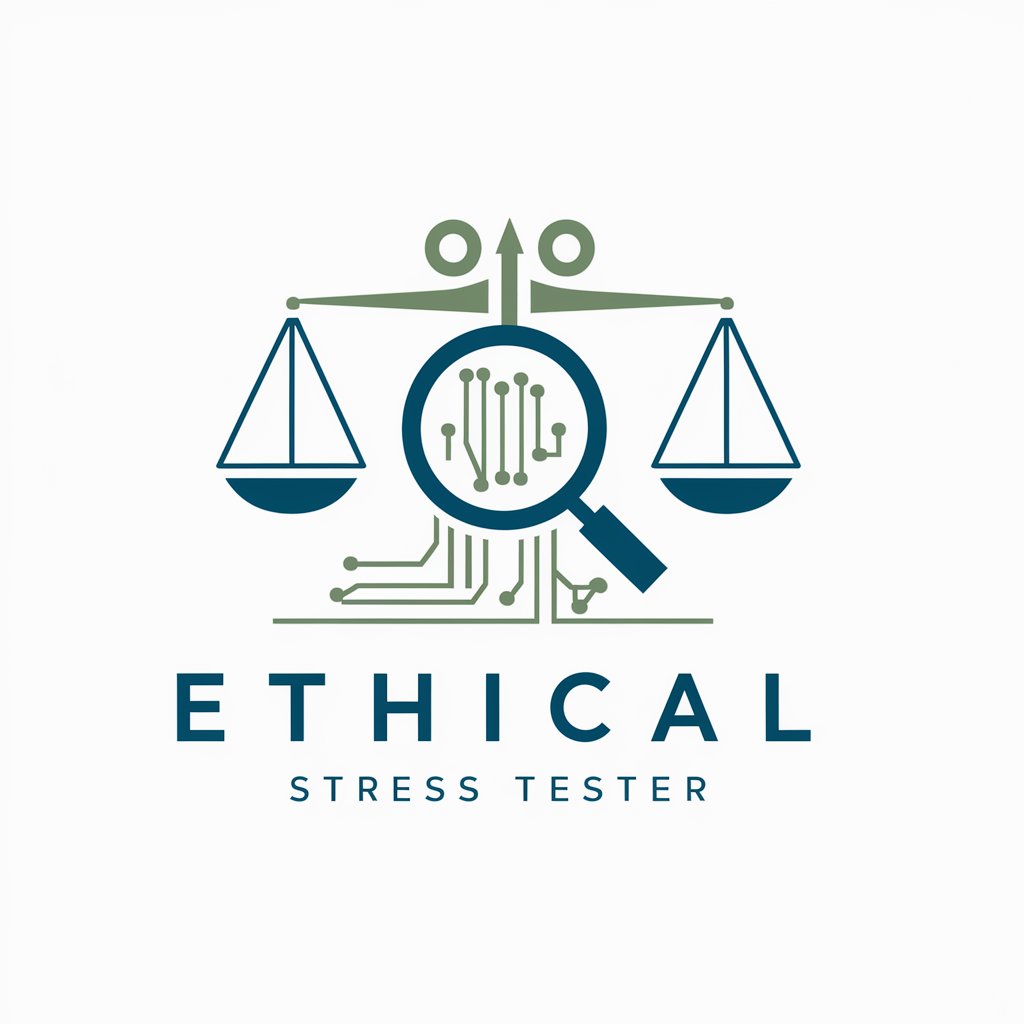Sunscreen Sage - Analysis of Sunscreen Ingredients

Hello! Let's dive into the safety of your sunscreen.
Unlock the secrets of your sunscreen
Please analyze the ingredients in this sunscreen and identify if any are estrogenic.
Can you determine if there are any comedogenic ingredients in this sunscreen product?
I'd like to know about any potential unwanted effects of these sunscreen ingredients.
Could you provide a detailed breakdown of the safety and skin effects of the ingredients in this sunscreen?
Get Embed Code
Understanding Sunscreen Sage
Sunscreen Sage is a specialized digital tool designed to provide expert analysis of sunscreen ingredients with a focus on health and skin safety. The core purpose of Sunscreen Sage is to dissect the components of sunscreen products and evaluate their potential impacts based on scientific research. This involves identifying estrogenic and comedogenic substances, which can respectively mimic estrogen hormones and clog pores, as well as highlighting other ingredients that might cause skin irritation or allergic reactions. The tool meticulously categorizes ingredients to inform users about possible health risks and to assist in making better-informed decisions regarding sunscreen selection. For example, when analyzing a sunscreen label, Sunscreen Sage can pinpoint ingredients such as Oxybenzone, a known estrogenic chemical, and Isopropyl Myristate, a comedogenic agent, thus guiding users towards products that are safer and better suited for their skin type. Powered by ChatGPT-4o。

Key Functions of Sunscreen Sage
Identifying Estrogenic Ingredients
Example
Oxybenzone, Homosalate
Scenario
In a scenario where a user checks the ingredient list of a sunscreen labeled as 'extra protection,' Sunscreen Sage can identify 'Oxybenzone' and 'Homosalate' as estrogenic chemicals, advising on their potential to disrupt endocrine functions and suggesting alternatives.
Assessing Comedogenic Potential
Example
Lauric Acid, Isopropyl Palmitate
Scenario
For users with acne-prone skin, Sunscreen Sage analyzes ingredients such as 'Lauric Acid' and 'Isopropyl Palmitate' that are known to clog pores. It informs the user of these comedogenic properties, helping them choose non-comedogenic options.
Evaluating Other Unwanted Effects
Example
Avobenzone (causes skin irritation), Octocrylene (linked to allergies)
Scenario
When evaluating a sunscreen that includes 'Avobenzone' and 'Octocrylene,' Sunscreen Sage flags these ingredients for their roles in causing potential skin irritation and allergic reactions, providing a basis for users to seek alternatives.
Ideal Users of Sunscreen Sage
Consumers with Sensitive Skin
Individuals with sensitive or acne-prone skin who require careful selection of skincare products to avoid breakouts, irritation, or allergic reactions. Sunscreen Sage helps them identify products free from harsh chemicals and comedogenic ingredients.
Health-Conscious Consumers
People concerned with the long-term health implications of skincare ingredients, especially those that might affect hormonal balance (estrogenic) or skin integrity. Sunscreen Sage provides detailed insights into the chemical composition of sunscreens, facilitating a healthier choice.
Parents of Young Children
Parents looking for safe sunscreen options for their children need to avoid ingredients that could affect hormonal development or cause skin reactions. Sunscreen Sage's ability to identify harmful chemicals ensures that parents can choose the safest sunscreens for young skin.

How to Use Sunscreen Sage
Start Free Trial
Visit yeschat.ai for a free trial without requiring login or a ChatGPT Plus subscription.
Input Ingredients
Enter the list of ingredients found in your sunscreen product into the provided text box on the Sunscreen Sage interface.
Analyze Ingredients
Click 'Analyze' to receive a comprehensive report on the estrogenic, comedogenic, and other potential unwanted effects of each ingredient.
Review Results
Carefully review the analysis to understand which ingredients may pose risks based on their properties and your specific skin type or concerns.
Ask for Recommendations
Use the optional feature to ask for alternative ingredients or product recommendations if some ingredients are unsuitable for your needs.
Try other advanced and practical GPTs
Corgi Companion
Your Digital Corgi Expert

Energy Efficiency Advisor
Optimize Your Home Energy with AI

PersonaGenerator Youth
Craft Authentic Youth Personas with AI

G Sheets Guru
AI-powered Google Sheets support

AI Translator German:English
Bridging Languages with AI-Powered Precision

R00NEY
Evolving AI Companion for Innovation and Self-improvement

Morning Sunshine
Brightening Your Mornings with AI

Morning Sunshine
Spreading joy through AI-powered news

Sunshine Responder 😊
Spreading Sunshine with AI

ConverseMaverick
Empowering athletes with AI-driven mentorship

Ethical Stress Tester
Assess Technology Ethics AI-Powered

Südtirol Bot - Lerne Südtirolerisch
Master Südtirolerisch with AI-powered assistance

Frequently Asked Questions About Sunscreen Sage
What does it mean if an ingredient is labeled as 'estrogenic'?
An ingredient labeled as 'estrogenic' means it may mimic or interfere with the natural action of estrogen hormones in the body, potentially leading to hormonal imbalances or health concerns.
Can Sunscreen Sage identify all types of allergens in sunscreen?
While Sunscreen Sage focuses on estrogenic and comedogenic properties, it can also highlight known allergens among the ingredients, helping users identify potential skin sensitivities.
How accurate is the comedogenic rating provided by Sunscreen Sage?
The comedogenic ratings are derived from established dermatological research, providing a reliable guide to which ingredients might clog pores or exacerbate acne-prone skin.
Does Sunscreen Sage offer alternatives for harmful ingredients?
Yes, upon analysis, Sunscreen Sage can suggest alternative ingredients or products that do not contain harmful properties, assisting in safer skincare choices.
Is Sunscreen Sage suitable for professional use in dermatology?
Absolutely, dermatologists can use Sunscreen Sage as a tool to better understand and explain the implications of various sunscreen ingredients to their patients, enhancing tailored skincare recommendations.
